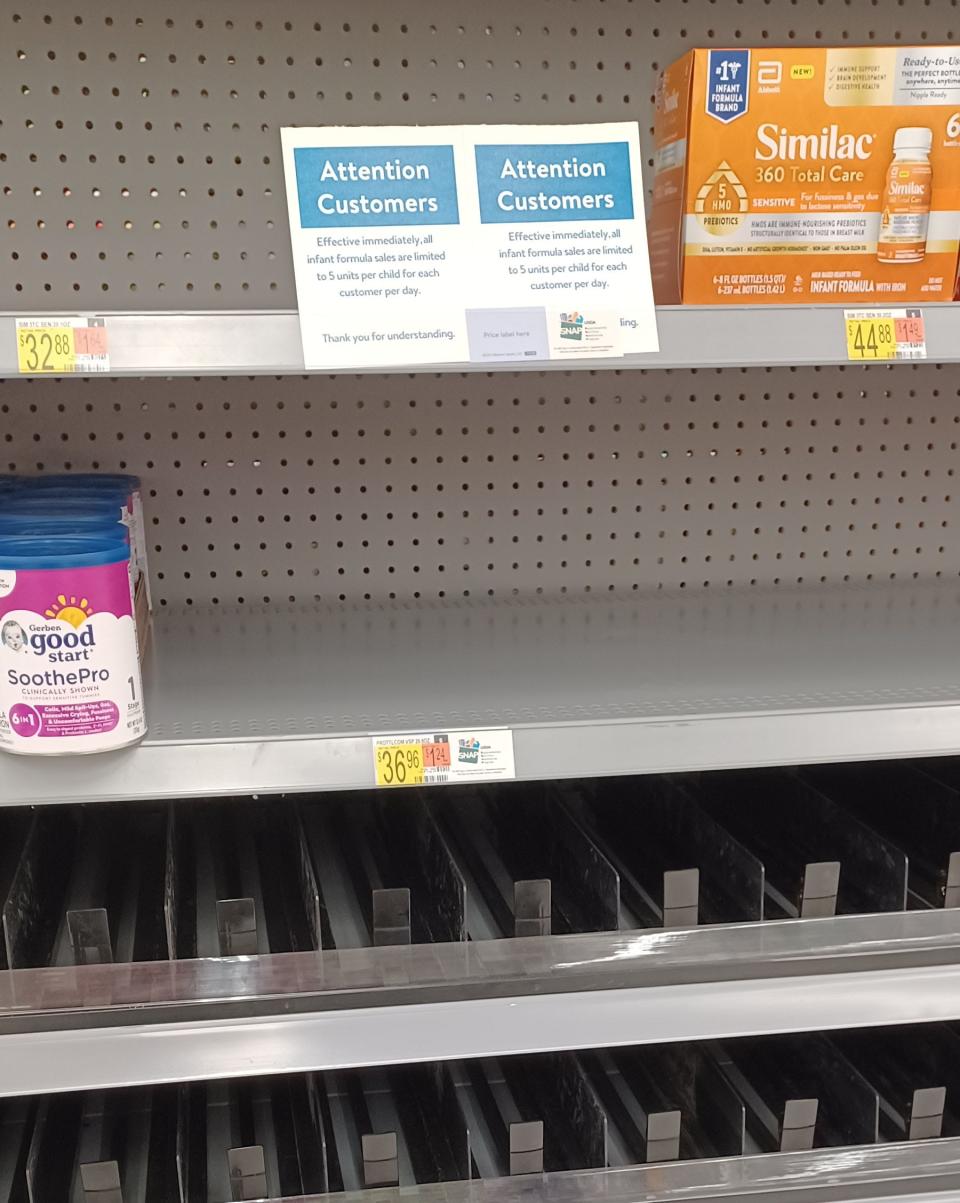Abbott reaches agreement to reopen Sturgis plant
Infant formula maker Abbott said Monday it's reached an agreement with U.S. health officials to restart production at its largest domestic factory in Sturgis, a key step toward easing a nationwide shortage tied to the plant's shutdown earlier this year.
Abbott did not immediately detail the terms of the agreement reached with the Food and Drug Administration, which has been investigating safety problems at the Sturgis facility. The consent decree is a binding legal agreement between the company and the federal government.
After production resumes, Abbott has said it will take at least eight weeks to begin shipping new product to stores.
The decree requires Abbott to take specific measures designed to increase safety and ensure compliance with the Federal Food, Drug and Cosmetic Act and the FDA Good Manufacturing Practice Requirements.
“The actions we are announcing today will help to safely increase the supply of baby formula for families,” said Attorney General Merrick B. Garland. “The Justice Department will vigorously enforce the laws ensuring the safety of our food and other essential consumer products, and we will work alongside our partners across government to help make sure those products are available to the American people.”
In a complaint filed Monday, the United States alleged that Abbott, Division Vice-President of Quality Assurance Lori J. Randall, Sturgis Director of Quality Keenan S. Gale, and Sturgis Site Director TJ Hathaway manufactured powdered infant formula under conditions and using practices that failed to comply with regulations designed to ensure the quality and safety of infant formula, including protection against the risk of contamination from bacteria such as Cronobacter sakazakii.
The Cronobacter sakazakii bacteria can live in dry foods, such as powdered infant formulas, and can cause deadly sepsis or meningitis in infants. The complaint further alleged that FDA testing of environmental samples taken in February detected Cronobacter sakazakii in the defendants’ manufacturing facility.
Abbott has agreed to resolve the complaint in a proposed consent decree of permanent injunction. Under the proposed consent decree, which must still be reviewed and entered by a federal court, Abbott must retain outside expert assistance to bring its facility into compliance with the FDCA and good manufacturing practice regulations. Among other things, the expert will assist Abbott, under FDA supervision, in the development of plans designed to reduce and control the risk of bacterial contamination, and will periodically evaluate Abbott’s compliance with the FDCA, regulations, and the consent decree.
The proposed consent decree also follows a thorough FDA inspection of the Sturgis facility and ongoing efforts by Abbott to address observations made during that inspection. The proposed consent decree sets out what Abbott must do to resume safely manufacturing infant formula at the Sturgis facility, which will help to mitigate the shortage of infant formula while also protecting public health.
“Federal laws regarding the safe manufacture of food, particularly food for infants, must be rigorously enforced,” said Principal Deputy Assistant Attorney General Brian Boynton, head of the Justice Department’s Civil Division. “The proposed consent decree underscores the department’s commitment to protecting our most vulnerable citizens while also ensuring access to an essential product.”
“Today’s action means that Abbott Nutrition has agreed to address certain issues that the agency identified at their infant formula production facility in Michigan,” said FDA Commissioner Robert M. Califf, M.D. “The public should rest assured that the agency will do everything possible to continue ensuring that infant and other specialty formulas produced by the company meet the FDA’s safety and quality standards, which American consumers have come to expect and deserve. We recognize the hardships that parents and caregivers have faced in obtaining infant formula and the FDA is focused on boosting the availability of the country’s supply of these products, including new steps regarding importation. We are also taking a look at the supply of infant formulas developed by manufacturers across the country and around the world to determine if a reallocation of their distribution can be made to help get the right product to the right place, at the right time.”
The Biden administration has come under intense pressure over the last week to do more to ease the shortage of formula that has forced parents of infants to go to significant lengths to feed their children.
Abbott's plant came under scrutiny earlier this year after four infants became sick with bacterial infections after consuming powdered formula from the Michigan factory. Two of the babies died.
In February, the company halted production and recalled several brands of formula. Those steps squeezed supplies that were already strained by supply chain disruptions and parents stockpiling during COVID-19.
The Associated Press contributed to this report.

This article originally appeared on Sturgis Journal: News

